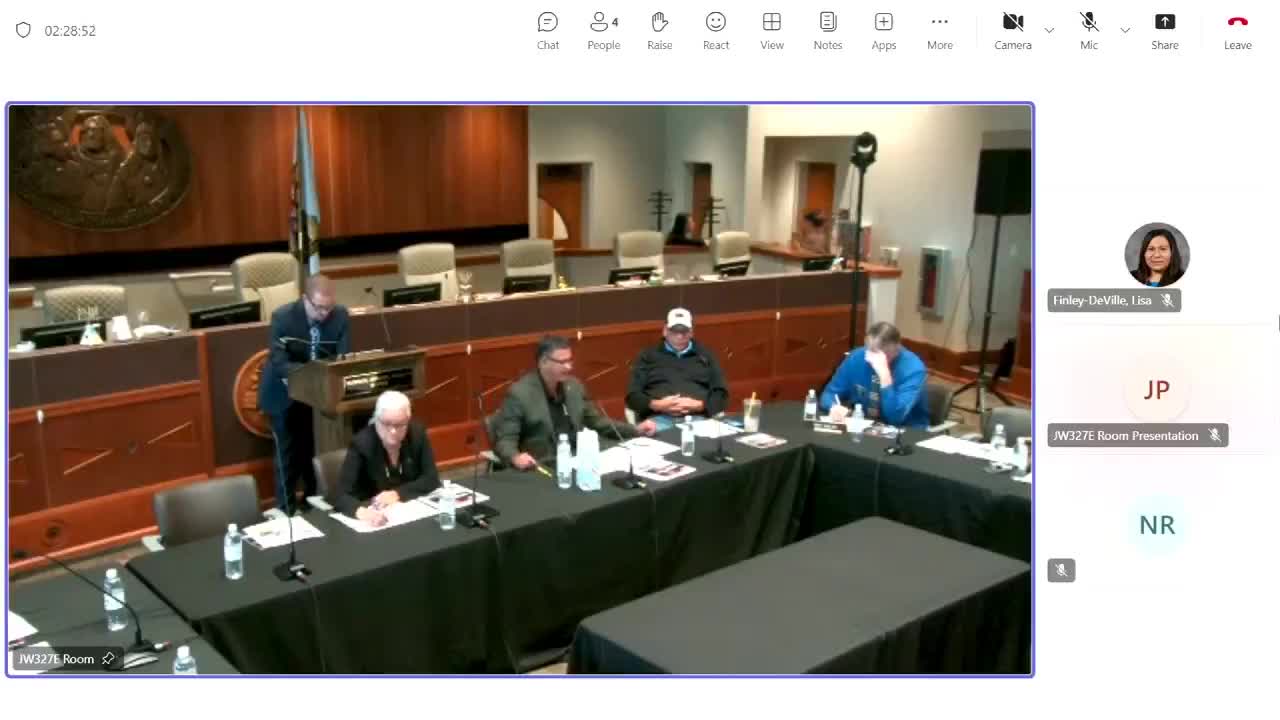Legislative committee backs drafting bill to seek IMD waiver for tribal treatment centers
Get AI-powered insights, summaries, and transcripts
Subscribe
Summary
After hearing testimony from MHA Nation leaders and recovery providers, the Legislative Tribal‑State Relations Committee voted to draft legislation asking the state to pursue a federal IMD waiver so tribal and regional drug‑treatment centers can expand beyond the current 16‑bed Medicaid reimbursement limit.
The Legislative Tribal‑State Relations Committee voted Thursday to direct staff to draft legislation asking the state of North Dakota to pursue an IMD (institution for mental disease) waiver that would let tribal treatment facilities receive Medicaid reimbursement for residential programs larger than 16 beds.
The committee’s action followed testimony from MHA Nation officials and recovery providers about limits on treatment capacity and the costs of sending people to out‑of‑state programs. Committee members recorded unanimous support on a roll call after a motion to draft legislation and to have a senator work with Legislative Council on language.
The measure the committee asked staff to draft is designed to address the federal IMD exclusion, a Medicaid policy that currently prevents Medicaid reimbursement for inpatient psychiatric and addiction treatment in facilities that exceed 16 beds for certain adult patients. MHA recovery leaders described how the rule effectively caps their ability to treat large numbers of people locally and forces tribes to send members out of state for longer, costlier care.
Justin Shook, executive director of Good Road Recovery Center, told the committee the state is one of the few without an IMD‑type waiver and that North Dakota’s rural geography makes keeping patients in‑state particularly important. “North Dakota is likely one of the most rural. We can’t get clinicians out in those rural areas,” he said, describing vacancies for licensed addiction counselors in remote sites and the resulting reliance on out‑of‑state placements.
Dr. Joy Fralick, director of MHA Recovery Centers, described the local services that would expand with waiver support: a residential center (Good Road Recovery), a women‑and‑children campus (Healing Hearts Lodge), outpatient clinics and sober living. She said Healing Hearts alumni maintain sobriety at high rates — “51 percent of their alumni maintain their sobriety past two years” — and argued a waiver would let the tribe scale capacity and bill Medicaid rather than rely entirely on tribal funds.
Committee members discussed drafting a bill in the interim so the issue could be developed outside the short regular session. A committee member volunteered to work with Legislative Council on draft language; another member seconded the offer, and the body then approved moving forward. The committee asked staff to have a draft available for review at a future interim meeting and invited tribal representatives to attend that session.
The committee’s vote came after extended testimony from tribal officials about treatment capacity, costs, and related barriers such as Medicaid billing processes and the need for presumptive eligibility for in‑patient admissions. Several committee members signaled support for a legislative route and for further outreach to other tribes to build a broader coalition.
What’s next: the committee will expect draft language from Legislative Council and will place the item on a future interim meeting agenda, where tribal staff and treatment providers can review the draft and offer edits before the 2027 legislative session.
